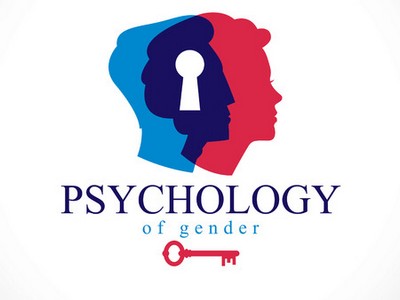
Symptoms Of Major Depressive Disorder Psychologist Southport (07) 5539 9798

Introduction: Symptoms Of Depression And Anxiety Psychologist Southport Near Me
Anxiety OCD Treatment Specialists Southport Near Me and depression are 2 of the most common mental health conditions that individuals face today. While they may seem like separate conditions, they are frequently interconnected and can have a considerable impact on an individual's overall wellness. In this short article, we will explore the connection between anxiety and anxiety, the symptoms related to each condition, and what steps individuals can take to manage and overcome these challenges.
Understanding Stress and anxiety and Depression
What is Anxiety?
Anxiety is a natural action to tension or danger. It is defined by feelings of anxiousness, worry, and fear about everyday scenarios. While it is typical to experience anxiety from time to time, chronic anxiety can hinder everyday activities and effect one's quality of life.
What is Depression?
Depression, on the other hand, is a mood disorder that affects how you feel, think, and deal with day-to-day activities. It surpasses regular sensations of sadness or sorrow and can continue for weeks, months, and even years. Anxiety can make it hard to operate in various areas of life, consisting Isabella Whittingham Registered Psychologist Gold Coast of work, relationships, and self-care.
The Connection Between Stress And Anxiety and Depression
Anxiety and anxiety frequently work together. Lots of people who experience anxiety likewise struggle with signs of anxiety, and vice versa. The link between the 2 conditions can be attributed to numerous factors:
Chemical Imbalance: Both anxiety and anxiety are thought to involve an imbalance of neurotransmitters in the brain, such as serotonin and dopamine.
Shared Genetic Elements: Research study suggests that there might be a hereditary predisposition for developing both stress and anxiety and depression.
Stressful Life Events: Distressing experiences or significant life occasions can activate both anxiety and depression symptoms.
Negative Believing Patterns: Individuals with stress and anxiety tend to have negative ideas and stress excessively about future events. These believed patterns can add to the development of depression.
Physical Signs: Stress and anxiety and depression can manifest with similar physical signs, such as tiredness, sleep disruptions, and changes in appetite.
Symptoms of Anxiety
Anxiety can manifest in different ways and may provide different signs in each person. Some common symptoms of anxiety consist of:
Excessive Concern: Consistent and excessive fretting about everyday scenarios, even when there is no obvious reason for concern.
Restlessness: Feeling on edge or not able to unwind, frequently accompanied by physical symptoms like shivering or fidgeting.
Difficulty Concentrating: Difficulty focusing or remaining present due to racing ideas or preoccupation with worry.
Irritability: Feeling easily irritated or agitated, in some cases without a clear cause.
Sleep Disturbances: Sleeping disorders or restless sleep due to racing ideas or worries.
Physical Signs: Stress and anxiety can likewise manifest physically, causing signs such as rapid heart beat, shortness of breath, lightheadedness, or intestinal issues.
Symptoms of Depression
Depression can differ in seriousness and presentation from person to person. Some typical symptoms of depression consist of:
Persistent Unhappiness: Feeling unfortunate, empty, or hopeless for a prolonged duration, typically accompanied by tearfulness.
Loss of Interest: Disliking activities once taken pleasure in and experiencing an absence of motivation.
Changes in Cravings: Substantial weight-loss or gain due to changes in appetite or eating habits.
Fatigue: Feeling worn out and lacking energy, even after getting adequate sleep.
Difficulty Focusing: Problem focusing, making choices, or remembering details.
Suicidal Ideas: In serious cases, depression can lead to ideas of self-harm or suicide. It is important to seek aid if you experience these thoughts.
How to Handle Anxiety and Depression
Managing anxiety and anxiety requires a comprehensive method that deals with both the physical and psychological elements of these conditions. Here are some methods that can assist:
Seek Expert Assistance: Talk to a psychological health professional, such as an anxiety psychologist in Surfers Paradise, who can supply a precise medical diagnosis and establish a personalized treatment plan.
Medication: Sometimes, medication may be prescribed to help manage signs of anxiety and anxiety. A competent healthcare provider can determine if medication is necessary.
Therapy: Cognitive-behavioral therapy (CBT) and other evidence-based therapies can assist individuals identify negative thought patterns, develop coping mechanisms, and improve overall wellness.
Self-Care: Engage in activities that promote self-care, such as regular workout, practicing relaxation techniques (e.g., deep breathing or meditation), guaranteeing sufficient sleep, and preserving a balanced diet.
Social Support: Connect to pals, family, or support system who can provide understanding and motivation during tough times.
Avoid Substance Abuse: Substance abuse can get worse signs of stress and anxiety and anxiety. It is important to avoid self-medicating with drugs or alcohol.
Frequently Asked Questions
- Anxiety is characterized by extreme concern and fear about everyday scenarios, while depression includes consistent sensations of sadness or despondence that impact everyday functioning.
- Yes, anxiety is thought about a mental disorder when it disrupts daily life and causes significant distress.
- Signs of anxiety in men might include irritation, anger or hostility, increased risk-taking habits, substance abuse, or physical signs like headaches or gastrointestinal issues.
- While there is no definitive cure for anxiety and anxiety, they can be efficiently managed and treated with the right mix of treatment, medication, and self-care strategies.
- Yes, depression is a mental disorder defined by relentless sensations of unhappiness, despondence, and a loss of interest in activities once enjoyed.
- Offer support and encouragement, listen without judgment, and motivate them to seek professional assistance. Inform yourself about their conditions to much better comprehend their experiences.
Conclusion
Anxiety and anxiety are complex conditions that frequently coexist and can significantly affect an individual's well-being. Comprehending the connection between these 2 disorders is essential for effective treatment and management. By looking for expert aid, practicing self-care, and developing a strong support group, individuals can take steps towards overcoming anxiety and depression and regaining control over their lives. Remember that you are not alone in this journey, and there is expect a brighter future.
Signs Symptoms Of Depression Psychologist Southport
Stress Vs Depression Psychologist Southport Near Me
Isabella Whittingham Registered Psychologist Gold Coast
Surfers Paradise Chiropractic Centre-Dr. Bruce https://surfersparadisechiropractic.com.au/biocharger-therapy-gold-coast/ Whittingham
12 Thomas Drive, Surfers Paradise QLD 4217
(07) 5539 9798
https://surfersparadisechiropractic.com.au
Depression Anxiety Test Psychologist Southport Near Me